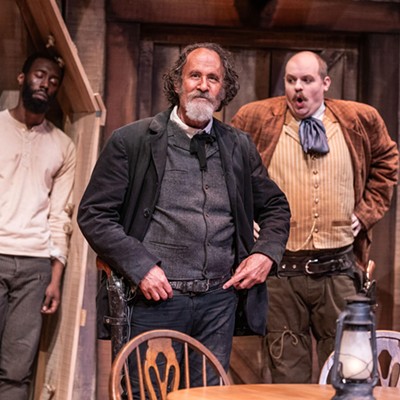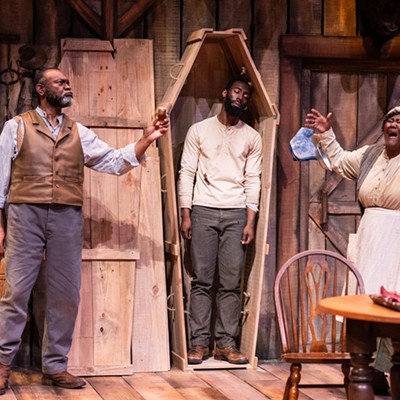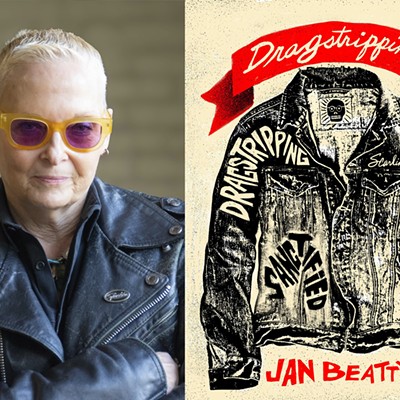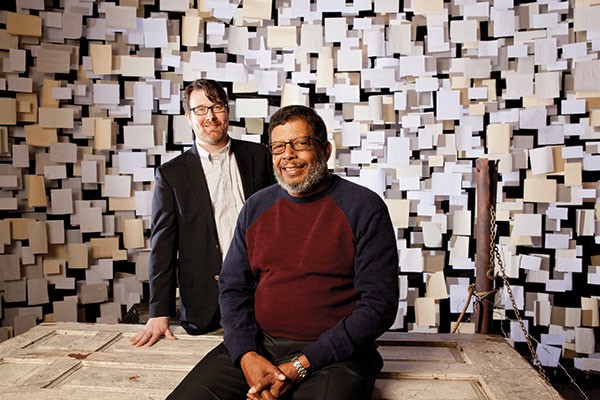
The late August Wilson's legacy is secure. But there's one last piece of it that the towering playwright's hometown has yet to experience.
How I Learned What I Learned is the one-man show Wilson himself performed for a couple of years before his death. It's standup memoir, mostly about his artistic formative years as a young poet living in the Hill District, confronting racism and working odd jobs around town. Pittsburgh Public Theater's staging of this Pittsburgh premiere, with actor Eugene Lee, is a homecoming on several levels: Director Todd Kreidler says that the seed of Wilson's final play were sown in the concrete right outside the Public's own O'Reilly Theater.
It was 1999. Wilson had left Pittsburgh two decades earlier, and was now a two-time Pulitzer Prize-winner. He was back to stage the world premiere of King Hedley II, the latest in his monumental 10-play Pittsburgh Cycle that includes Fences and The Piano Lesson. Kreidler, meanwhile, was a young Public staffer who got to trading life stories with Wilson one day on break during rehearsals. Wilson would eventually hire Kreidler, a Duquesne University grad who grew up near Vandergrift, as his assistant.
Kreidler says that impromptu storytelling session helped inspire Wilson, by then living in Seattle, to envision a monologue he initially called I'm Not Spalding Gray (after the famed monologist). He toyed with the alternate titles Move Over, Chris Rock and, provocatively, Sambo Takes on the World, before settling on How I Learned What I Learned. The show, with Kreidler directing, premiered at the Seattle Repertory Theatre in 2003 and was performed around the country. When Wilson died, in 2005, at age 60, he left Kreidler to continue the show with an actor in his place.
When How I Learned reached off-Broadway, in 2013, starring Ruben Santiago-Hudson, it took audiences on a raconteur's companionable, episodic yet incisive ramble through Wilson's racially segregated Pittsburgh of the 1950s and '60s. "My ancestors have been in America since the early 17th century, and for the first 244 years, we never had a problem finding a job," the Wilson character begins, wryly. He recalls quitting high school — and more than one job — because of racism. But he also bemusedly delineates experiences from his first kiss to his dangerous affair with a married woman. And he sketches the scene in the still-thriving Hill, where fascinating characters roamed the streets and bars — and where, one night, John Coltrane played loudly enough to serenade a sidewalk audience who couldn't afford entry to the famed Crawford Grill.
Friends of Wilson's love to mimic the playwright's raspy voice. But while Lee, a veteran playwright and stage, film and TV actor, did How I Learned last year at Atlanta's True Colors Theatre, don't expect any August Wilson impersonations at the Public. "We're not trying to recreate him," says Kreidler. "We're trying to coax or conjure him through the stories. It's August's stories that live on."
What will audiences get from the play that's not in August Wilson: The Ground on Which I Stand, the new 90-minute PBS American Masters documentary?
"This takes a closer and deeper look at the 20-year-old poet," says Lee.
"[Wilson's] exploration on the page is always, ‘Where do the ideas and the attitudes of his characters come from?' This is an opportunity to see, ‘Where do the ideas and attitudes of August Wilson come from?'" says Kreidler. "It's a gold mine. ... It's the closest thing he left us to a memoir."
The play's staging here is especially important for local artists whom Wilson influenced. Mark Clayton Southers, for instance, was first drawn to theater by Kuntu Repertory Theatre's 1984 staging of Wilson's Ma Rainey's Black Bottom. In 1998, the fledgling playwright met and studied under Wilson. That fall, at his home in Schenley Heights, Southers founded a play-reading group for Wilson's plays by local actors. One night, when they planned to read Jitney, Wilson himself phoned to ask if he could join them.
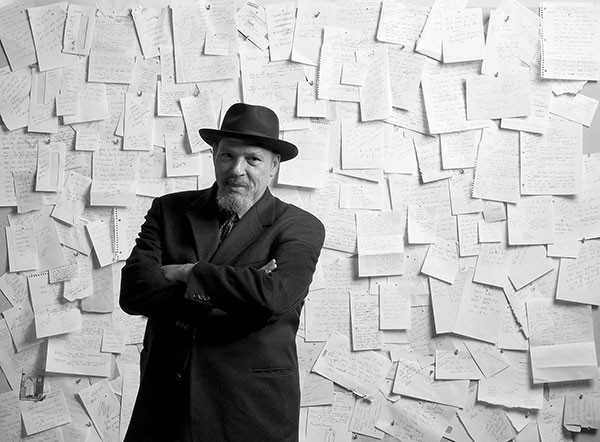
Southers didn't say no. He speculates that Wilson thought, "They're reading one of my plays in the Hill. I have to be there."
In 2003, inspired by Wilson, Southers founded Pittsburgh Playwrights Theatre Co. to showcase local talent. The troupe has produced Wilson's entire Pittsburgh Cycle (it's staging Fences again in May) and Southers is in demand around the country as a director of Wilson's plays. "He was a great guy," says Southers. "I miss him."
Kreidler acknowledges the pressure of doing How I Learned in Pittsburgh.
"Eugene and I have discovered from the first day [of rehearsal] how special it is to do this here," says the director, who is based in Vandergrift with his wife, Erin Annarella, and 2-year-old son, Evan August. "We're bringing this home."



